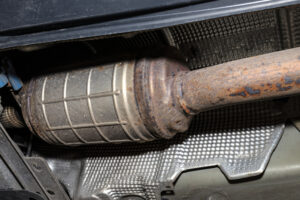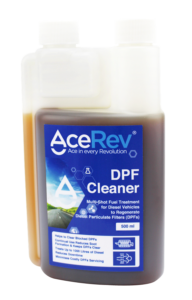Effective Way to Fix The DPF Problems

Do you have problems with your diesel vehicle?
Is your vehicle equipped with an Exhaust Gas Recirculation (EGR) system and Diesel Particulate Filter (DPF)?
A DPF is an effective means of minimising dangerous emissions from the exhaust. However, DPFs tend to cause issues for non-highway type applications progressively such as the following:
- The number of “forced regenerations” increases. It requires the diesel truck to be parked up for at least 20 minutes at a time. This is to burn off the soot trapped in the DPF. It’s usually done by introducing more diesel. So during DPF forced regeneration, more diesel is consumed.
- Some excess diesel required for DPF regenerations can seep into the engine oil. This would in turn cause engine oil dilution. The diluted engine oil losses its lubrication effect and no longer protects the engine components against friction and wear and tear. This usually goes unnoticed. The only visible symptom is the increasing volume of engine oil. This may eventually lead to engine damage and engine overhaul.
- When such regeneration cycles become ineffective, DPF would then need to be removed for cleaning. The damaged DPF would need to be replaced. These are very costly and cause significant vehicle downtime.
To counter this series of DPF problems, you may have done the following actions yet the problems still persist:
- Tried driving at high speed to trigger passive regeneration.
- Stopped at the roadside for 10 – 20 minutes, and pressed the Forced Regeneration button located on your dashboard. Note: Some vehicles do not have this button, it needs to be activated via On-board diagnostics (OBD) devices
- Visited the workshop to dismantle the DPF by flushing it with water or compressed air
- The workshop ‘cleaned’ the DPF, only to have the DPF blocked again within a few weeks to a few months.
- Replaced the entire DPF due to poor mishandling by technicians. This could happen if the expensive ceramic catalyst inside the DPF was broken.
- Experienced engine overhaul as the diesel seeped into the engine oil during DPF Forced Regeneration. This negatively impacted the oil’s lubricity.
Fortunately, you now have an easier way to solve the EGR or DPF issues with your diesel vehicle.

All you need to do is simply add AceRev DPF Cleaner into the vehicle’s diesel tank. AceRev DPF Cleaner contains a fuel-borne catalyst that will burn off trapped soot or carbon particles in DPF. With AceRev DPF Cleaner, you can minimise diesel vehicle downtime and you do not need to spend thousands of dollars on workshops.
